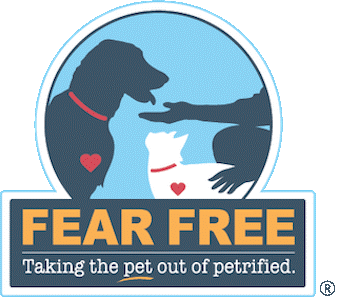Spring is on the way!

The days are getting longer, and the weather is getting milder, which means spring is on its way! For most owners, this is good news. It means more opportunities to walk your dog, watch your bunnies doing binkies in the garden or enjoy seeing your cat soaking up a few rays. While spring is a time to celebrate, pet owners also need to be aware of some potential seasonal dangers. We’re going to explore some of the top hazards that we see at this time of year and how you can avoid them.
Easter treats
One of the biggest events in the spring calendar is Easter and with any holiday comes treats! Unfortunately for our pets, many of our favourite seasonal foods are potentially harmful.
Hot cross buns (raisins)
Hot cross buns contain raisins, sultanas and/or currants – all of which are dried forms of grape. Grapes have the potential to cause kidney failure in dogs. The exact mechanism of action is , so we have a problem knowing how many grapes/raisins will cause toxicity in each individual animal. For some dogs, just one or two could cause kidney failure whereas others can eat several and still be ok. Affected animals could develop kidney damage and require intensive hospitalisation.
Don’t take the risk. Avoid giving your dog hot cross buns, or any other product that contains raisins or grapes. They are also thought to be toxic to cats. If they do eat any, get in touch with us.
Chocolate
Most owners know that chocolate is bad for dogs. The trouble is, with so much of it around at Easter, accidents can happen! Make sure that dogs are kept well out of the way during Easter hunts and store any chocolate eggs well out of reach of pets in the house.
If your dog does accidentally consume chocolate, then they could be in trouble. Dogs are unable to process theobromine (a chemical in chocolate that we can metabolise), which can lead to adverse effects like twitching, tremors, hyperexcitement, vomiting, diarrhoea, seizures and liver failure. Chocolate toxicity is dose-dependent, meaning that smaller dogs are more likely to be susceptible to its effects. Also, higher levels of theobromine are found in dark chocolates and cocoa powder, which means that even small amounts of these may cause serious problems.
Again, cats may also be affected by chocolate toxicity, but they are less likely to scavenge and eat things they shouldn’t do than dogs are, so problems are less commonly seen.
Roast dinner leftovers
Roast lamb is another Easter tradition, with many families tucking in during Sunday lunch. It is important that you don’t feed your pet too many leftovers, however. At best, a sudden change in diet could lead to some mild tummy troubles. At worst, it could trigger an episode of painful pancreatitis (inflammation of the pancreas). This condition could lead to hospitalisation for supportive care and treatment. Fatty foods in particular can cause flare-ups of this condition in susceptible individuals.
You will also need to dispose of the bones from your meat joint carefully. Never be tempted to give your dog any bones and make sure they can’t sneak them out of the bin. Both cooked and raw bones have the potential to obstruct your pet’s digestive system, leading to emergency surgery.
Toxic flowers
Bunches of spring flowers brighten up our homes around Easter time but could cause some serious problems for our pets. Garden flowers can be hazardous too. Bulbs like daffodils and tulips are particularly problematic if dug up and chewed. Let’s look at some of the most common toxic spring flowers –
- Lillies – All parts of the lily plant are highly toxic to cats. Even just grooming pollen that has accidentally brushed onto their fur could cause serious kidney damage.
- Daffodils – Any part of the plant, bulb, or the water from a vase they have been stood in, is poisonous. Daffodils can cause stomach upsets, wobbliness, lethargy and occasionally even convulsions.
- Hyacinths – The entire plant is toxic, but the bulb contains the highest concentration of toxic calcium oxalate crystals. This can cause drooling and stomach upset.
- Tulips – Tulips or their bulbs would irritate your pet’s mouth and digestive tract if ingested. An upset stomach, drooling, heart problems and breathing issues can all occur.
- Bluebells – All parts of the bluebell plant contain toxic glycosides which can cause stomach upsets, or even be fatal if consumed in large quantities.
Discourage your pet from chewing or playing with toxic spring plants. Lilies should not be kept in your house or garden at all if you own a cat.
Weather watch
Spring usually gives us a mixed bag weather-wise! This means we can be taken by surprise – heat waves, cold snaps and April showers can all make an unexpected appearance.
Hot spells
Sudden hot spells can catch us and our pets off guard. Brachycephalic (flat-faced) breeds in particular struggle in hot weather, leading to potentially fatal heat stroke. During hot weather make sure to exercise your pets in the cooler parts of the day and don’t leave them unattended in your car for any length of time.
Hot weather also means more flies, which is particularly problematic for rabbits. Flies are attracted to damp smelly fur, like that found around some rabbits’ bottoms. They lay eggs, which hatch out into maggots in a serious condition known as ‘flystrike’. Check your rabbit’s bottom daily, clean their bedding out regularly, and consider using a preventative treatment.
Cold snaps
Frosts and snow are still possible in early springtime. Take care of outdoor pets by making sure they have plenty of bedding and shelter. Also, make sure that their water supply doesn’t ice over and that you check on them regularly.
April showers
Spring often means rain! And rain could mean floods and fast-flowing streams or rivers. Take extra care when walking your dog, as they could get caught unawares in a favourite paddling spot. Consider keeping them on a lead if water levels appear deeper than usual.
Parasites
Make sure that your pet’s parasite protection is up to date. Warm damp weather is perfect for fleas and ticks. These creepy crawlies feed on your pet’s blood leading to irritation and spreading disease.
Lungworm is also a particular risk for dogs. This parasite is spread by slugs and snails, which are more prevalent in the spring months. Dogs can become infected with this potentially fatal parasite by accidentally ingesting slugs and snails, but also by encountering their slimy trails.
Final thoughts
Spring is a wonderful time of year. Hopefully our advice will help you and your furry friends to enjoy it safely. If you are concerned that your pet has eaten something toxic, then you should contact us straight away. Seeking treatment sooner rather than later leads to better outcomes in these cases.
We can also help you tailor an anti-parasite programme to meet your pet’s needs, keeping them safe and well this springtime. Contact us today for advice or to make an appointment.








